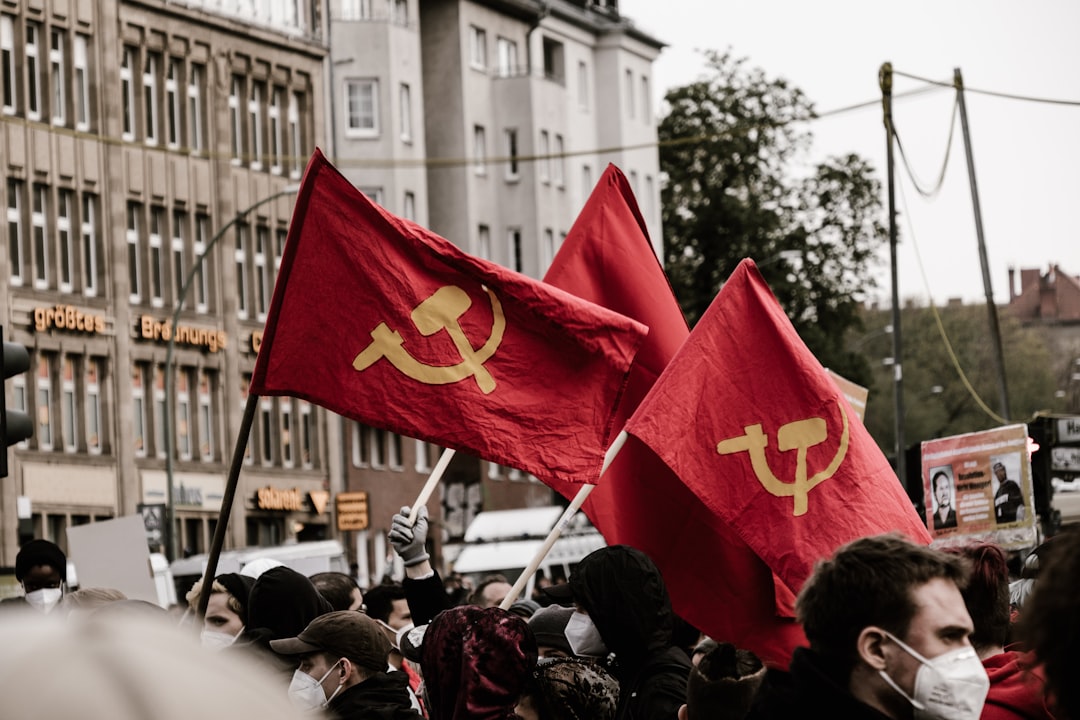Communism vs. Democracy
What's the Difference?
Communism and democracy are two distinct political ideologies that have shaped the course of history. While both aim to establish a fair and just society, they differ significantly in their approach. Communism advocates for the abolition of private property and the establishment of a classless society, where the means of production are owned and controlled by the community as a whole. On the other hand, democracy emphasizes individual rights, freedom of speech, and the power of the people to elect their representatives. While communism seeks to achieve equality through centralized control, democracy promotes equality through the protection of individual liberties and the principle of majority rule.
Comparison

| Attribute | Communism | Democracy |
|---|---|---|
| Economic System | Collective ownership of resources | Private ownership of resources |
| Political System | Single-party rule | Multi-party system |
| Leadership | Centralized authority | Decentralized authority |
| Individual Rights | Suppressed for the greater good | Protected and valued |
| Equality | Strives for economic equality | Strives for equal opportunities |
| Freedom of Speech | Restricted or censored | Protected and encouraged |
| Government Control | Extensive control over economy and society | Limited control, power held by the people |
| Decision-Making | Centralized decision-making | Decentralized decision-making |
| Political Participation | Controlled by the ruling party | Open to all citizens |
| Political Ideology | Marxism-Leninism, Maoism, etc. | Pluralism, liberalism, etc. |

Further Detail
Introduction
Communism and democracy are two distinct political ideologies that have shaped the course of history and continue to influence societies around the world. While both systems aim to provide governance and address societal needs, they differ significantly in their principles, economic structures, and individual freedoms. This article will explore the attributes of communism and democracy, highlighting their key differences and similarities.
Definition and Principles
Communism is a socio-economic ideology that advocates for the collective ownership of resources and the absence of social classes. It aims to create a classless society where wealth and resources are distributed equally among all members. In contrast, democracy is a political system that emphasizes the power of the people, allowing citizens to participate in decision-making processes through voting and representation. It upholds the principles of individual rights, freedom of speech, and the rule of law.
Economic Structure
One of the fundamental differences between communism and democracy lies in their economic structures. Communism promotes a centrally planned economy, where the state controls all means of production and distribution. This system aims to eliminate wealth disparities and ensure equal access to resources. In contrast, democracy supports a market-based economy, where private individuals and businesses have the freedom to own and control resources. This allows for competition, innovation, and the accumulation of wealth based on individual efforts.
Role of Government
In communism, the government plays a central role in decision-making and resource allocation. It exercises control over various aspects of society, including the economy, media, and education. The government's primary objective is to achieve equality and social justice. On the other hand, democracy emphasizes limited government intervention, allowing for a more decentralized decision-making process. The government's role is to protect individual rights, maintain law and order, and provide essential public services.
Individual Freedoms
While communism aims to create an egalitarian society, individual freedoms are often limited. In a communist regime, the state exercises significant control over personal choices, including freedom of speech, assembly, and religion. This is done to maintain social cohesion and prevent dissent that may challenge the ruling ideology. In contrast, democracy places a strong emphasis on individual freedoms and civil liberties. Citizens have the right to express their opinions, practice their religion, and participate in peaceful protests without fear of persecution.
Political Participation
Political participation differs greatly between communism and democracy. In a communist system, political power is concentrated in the hands of a single ruling party or a small group of leaders. The general population has limited influence over decision-making processes, and elections are often symbolic rather than genuinely competitive. Conversely, democracy encourages active political participation from its citizens. It allows for free and fair elections, multiple political parties, and the opportunity for individuals to run for office and shape the direction of the government.
Social Equality
Communism places a strong emphasis on social equality, aiming to eliminate wealth disparities and provide equal opportunities for all members of society. It seeks to eradicate social classes and create a society where everyone's needs are met. However, the implementation of communism has often resulted in a lack of economic incentives, stifling innovation and individual motivation. Democracy, while not guaranteeing absolute equality, promotes social mobility and provides opportunities for individuals to improve their socio-economic status through hard work and merit.
Pros and Cons
Communism has its advantages, such as the potential for greater social equality and the elimination of extreme poverty. It can also provide a sense of security and stability for its citizens. However, it often leads to limited individual freedoms, lack of economic incentives, and a concentration of power in the hands of the ruling elite.
Democracy, on the other hand, offers the advantages of individual freedoms, political participation, and a market-based economy that encourages innovation and economic growth. It allows for a more diverse range of opinions and ideas, fostering a dynamic society. However, democracy can also be prone to corruption, gridlock, and the influence of special interest groups.
Conclusion
In conclusion, communism and democracy represent two distinct political ideologies with contrasting principles, economic structures, and individual freedoms. While communism aims for social equality and collective ownership, democracy emphasizes individual rights, political participation, and a market-based economy. Both systems have their strengths and weaknesses, and their effectiveness largely depends on the specific context and implementation. Understanding the attributes of communism and democracy is crucial for informed discussions on governance and the future of societies worldwide.
Comparisons may contain inaccurate information about people, places, or facts. Please report any issues.